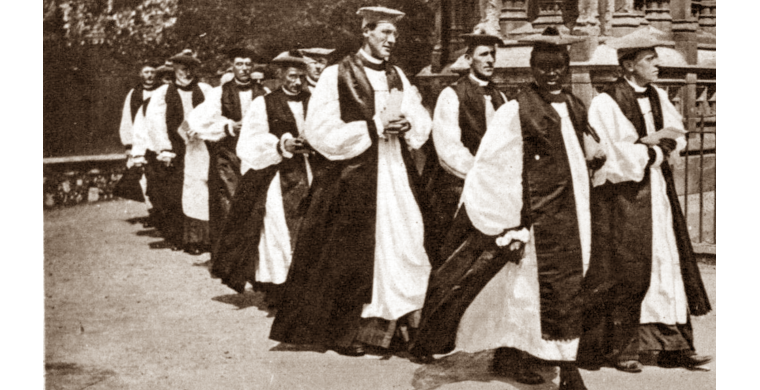THE LAMBETH CONFERENCE -- A THEOLOGICAL AND HISTORICAL REFLECTION
By Chuck Collins
From Facebook
July 28, 2022
There's a little hubbub surrounding the Lambeth Conference that starts - well, today! Once every ten years since the first Conference in 1867 the Archbishop of Canterbury has brought together Anglican bishops from around the world to discuss matters of mutual interest.
"Conference" was selected to describe this meeting because it is not a synod or council whose pontifical pronouncements would be binding on Provinces of the Communion. Lambeth resolutions mean nothing (e.g., the 1998 Lambeth Resolution 1.10 has been completely ignored like the drunk uncle at the wedding), and Lambeth Conferences have become an excuse for bishops to vacation in beautiful England at the expense of their dioceses.
When the convener strongly upholds and stands firm in the authority of Holy Scripture and the traditional Anglican formularies (the Thirty-nine Articles, two books of Homilies, and the 1662 Book of Common Prayer) he deserves our attention and full respect, but otherwise Canterbury has the authority of a donut vendor on Lambeth Avenue.
He is the first-among-equals, not some pope-like figure, who shares with all bishops the responsibility of upholding the catholic and apostolic faith of our Anglican heritage. But no one expects this Lambeth to produce anything but reports about how our bishops continue their Gadarene rush over cliff into insignificancy and social club status.
Over the span of my lifetime we have moved in a deliberate fashion away from confessional identity towards a lowest-common-denominator conciliar solutions to address our disunity. They want John 17 unity as much as everyone, but they are blind to the unity that comes from verse 17: a unity based on confidence in the authority of God's sanctifying Word.
It's funny to me, and more than a little ironic, that this year's Lambeth Conference begins on the day we remember William Reed Huntington. Huntington died July 26, 1909. He was a broad-church Episcopal priest who wrote the influential book, The Church Idea (1870). He was the architect of the Quadrilateral, first approved in Chicago by the Episcopal House of Bishops in 1886 and them by Lambeth in 1888 - the Chicago Lambeth Quadrilateral.
This simple statement was meant to bring the factions of the Episcopal Church together and to offer a unifying formula for the indisposition in the Anglican Communion. It calls for recognition of the authority of the Bible, the Nicene and Apostles' Creeds, two sacraments, and the historic place of bishops.
Huntington fought long and hard in his failed attempt to have the Thirty-nine Articles removed from the Book of Common Prayer. He was all for unity that is based on what brings tractarians, high churchmen, evangelicals, and broad churchmen together under one conciliar tent, but he was timid and fearful of a theological solution that is based on the teaching of our Anglican heritage.
The 2004 Windsor Report named four "Instruments of Unity," that included the Lambeth Conference of bishops, suggesting that if one or all of the Instruments decide something it would be a decision for the whole Communion. But for an invented body (e.g., The Anglican Consultative Council) to vote on the problems that divide us is just silly-thinking.
Theological problems have only theological solutions. The Chicago Lambeth Quadrilateral and the Instruments of Unity represent a deep shift from our real instruments of unity - the authority of the Bible as enshrined by the Thirty-nine Articles, the Homilies, and the Prayer Book. There are no conciliar solutions for our failures to subscribe to our confessional identity.
END














